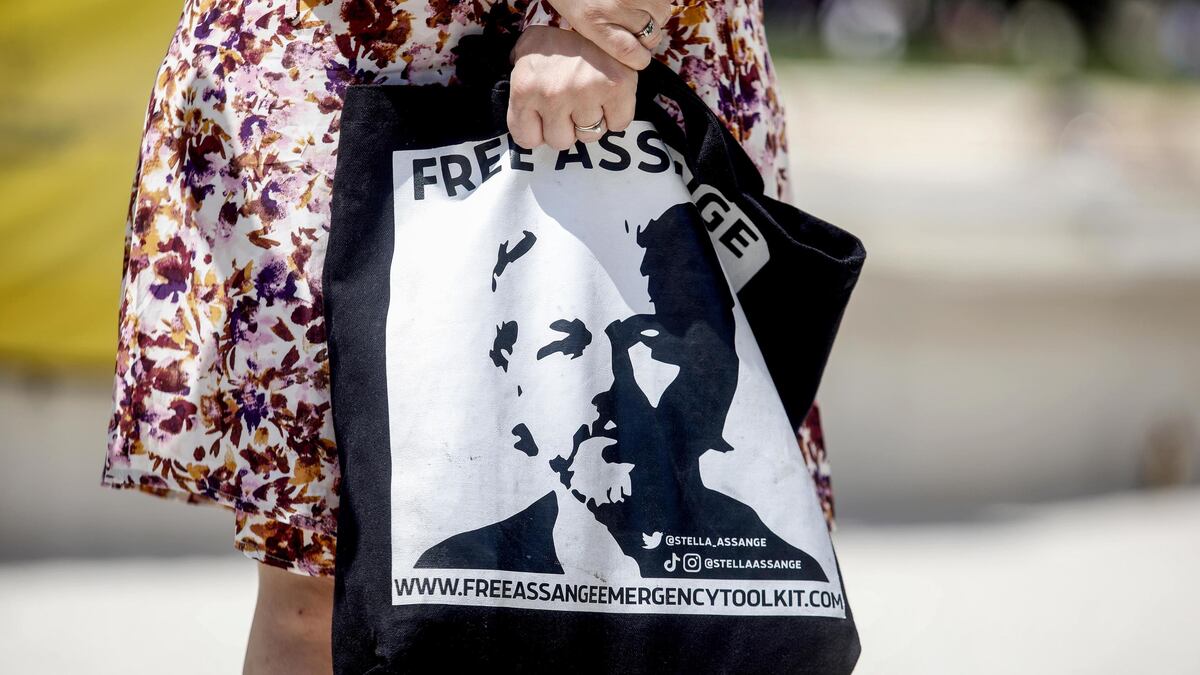- Julian Assange has agreed to a plea deal that grants him freedom.
- AssangeDAO previously raised $53 million to help the WikiLeaks founder.
Members of AssangeDAO, a collective set up in early 2022 that raised millions to fund Julian Assange’s legal defence, say the plea deal between the WikiLeaks founder and US authorities couldn’t have been reached without them.
“[It’s] a huge victory for crypto,” Harry Halpin, an early participant in AssangeDAO and CEO of Nym Technologies, told DL News.
“I do not believe Julian would be free if the US government did not know that Julian had enough censorship-resistant cryptocurrency to basically fund his legal battles indefinitely.”
Assange struck a plea deal with US authorities on Monday, allowing him to walk free after more than five years incarcerated in the UK. The deal follows Assange’s 14-year legal fight after he allegedly published confidential US military data from the Iraq and Afghanistan wars.
In February 2022, AssangeDAO raised some 16,593 Ether worth around $53 million by selling JUSTICE tokens.
Assets like Bitcoin and Ether cannot be frozen, making them the go-to choice for those who wish to avoid government scrutiny.
US authorities charged Assange with 18 counts of breaking the US Espionage Act. Assange agreed to a deal where he would plead guilty to a single charge for conspiring to obtain and disclose classified US national defence documents.
The terms of the deal allowed for Assange’s immediate release.
Raising funds
Onchain records show AssangeDAO sent all the crypto it raised to the Wau Holland Foundation, a German nonprofit that has accepted donations on behalf of Assange and WikiLeaks since 2009.
It’s not clear exactly how much of the $53 million was spent helping Assange’s case, though.
Halpin said the crypto raised by AssangeDAO was the “primary funding used to pay for lawyers and lobbyists to fight for Assange’s freedom.”
According to Silke Noa, a lawyer and one of the founding members of Assange DAO, the Wau Holland Foundation has not yet released documents detailing its spending.
“There may have been reasons not to be entirely transparent at the time, to not prejudice the legal campaign,” Noa told DL News.
She added, however, that the foundation is “tightly regulated” and that there’s no reason to believe the funds were somehow squandered.
Onchain records show more than 11,000 Ether out of the 16,593 donated to the Wau Holland Foundation has left the nonprofit’s wallet since it received the sum.
In May 2023, the foundation filed an LD-2 disclosure form showing that it hired and paid $600,000 to law firm Squire Patton Boggs to lobby the US Department of Justice on behalf of Julian Assange.
“Julian trusted Wau Holland 100 percent and I am certain they are getting ready to both pay lawyers and to diversify the funds,” Halpin said.
AssangeDAO had to be creative to ensure the funds it raised reached the foundation.
First, AssangeDAO raised funds through Juicebox, a programmable crypto funding platform. Juicebox kept 5% of the money raised.
The rest was used to bid on an NFT created by the Turkish digital artist formerly known as Murat Pak, known for his record breaking NFT sales. Pak then donated the funds directly to Wau Holland.
Noa said this structure “ensured that the anon funds would be bankable and could be used to pay Assange’s legal fees.”
What’s next?
Now that AssangeDAO has achieved its primary goal, the cooperative may be left without a purpose.
Halpin said he didn’t know what the plans for the DAO are, but said it will invite Assange to join in due course.
Noa said that now Assange had been freed, the DAO could be more forthcoming about the challenges it faced in funding the Wikileaks founder’s defence.
But, she said, that story would have to wait.
“It will only detract from the success today of helping to free Julian,” she said.
Update, July 1: This article has been updated to clarify that Harry Halpin was an early participant in AssangeDAO.
Tim Craig is DL News’ Edinburgh-based DeFi Correspondent. Reach out to him with tips at tim@dlnews.com.
